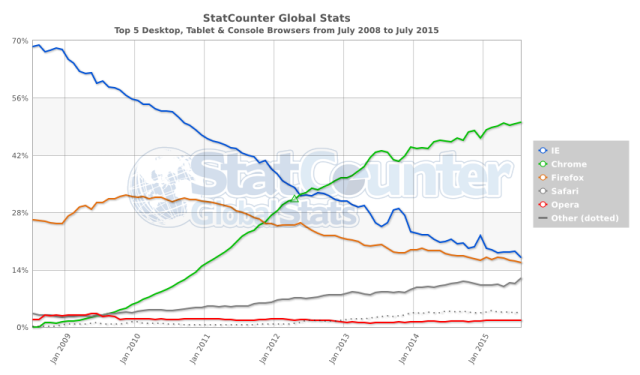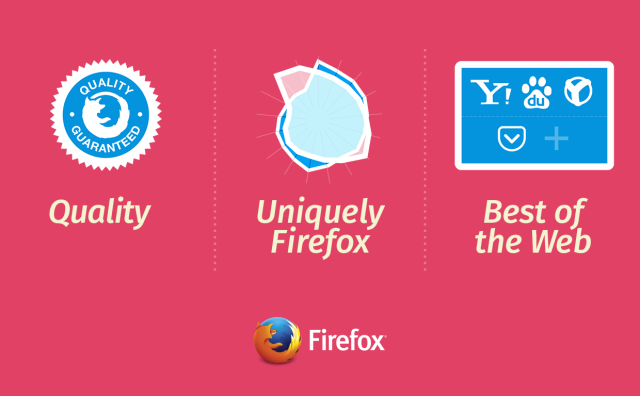
Firefox is about to undergo some dramatic changes, according to Mozilla. Most notably, it sounds like future versions of Firefox will focus on Firefox-esque features such as Private Browsing Mode, while features that are unpolished or otherwise not very useful will be stripped out of the browser entirely. Furthermore, it looks like Mozilla is finally getting serious about moving Firefox away from XUL and XBL, though it isn't clear if they will be replaced with open Web technologies (HTML, CSS, JS) or native UI.
In an e-mail to the firefox-dev mailing list, Firefox Director of Engineering Dave Camp has outlined what he calls the Three Pillars of the new Firefox: Uncompromised Quality, Best Of The Web, and Uniquely Firefox. Let's take them in order.
Uncompromised Quality will aim to strip out Firefox's half-baked ideas or carry them through to completion so that they're "polished, functional, and a joy to use." This program is internally dubbed "Great or Dead"—as in, if the Firefox devs can't make a feature great, it should be killed off. Camp says in the e-mail that Electrolysis (e10s)—Firefox's massively overdue implementation of per-tab processes—is one of the first features that needs to be focused on in order "to get the kind of snappy experience we need to make Firefox feel great."
Best Of The Web is a slightly more nebulous pillar that will concern itself with the add-ons community and partnerships with third parties like Telefonica. "We intend to spend some significant effort making addons even more awesome by improving security and performance for users and building a better API that increases x-platform compatibility for addon authors and partners," Camp says in the e-mail.
Uniquely Firefox is all about actually attracting new users to Firefox by "focus[ing] on the reasons users choose us in the first place." The only specific example given is an improved Private Browsing mode, which Camp says will "land shortly."

In a separate e-mail to firefox-dev, Camp outlined another big change for Firefox: XUL and XBL are going away, "but the discussion of how to do that is in the early stages." XUL (XML User Interface Language) and XBL (XML Binding Language) are currently used to create the UI in most versions of Firefox and its add-ons. XUL and XBL are useful in that they're cross-platform (they're rendered by Gecko), but problematic because they're not really used anywhere beyond Firefox. Most of the Web has moved onto HTML5, and thus ongoing support for XUL and XBL has languished. "Performance problems go unfixed and it creates a lot of unnecessary complexity within Gecko," Camp writes.
As for what will replace XUL and XBL, the jury is still out. Rather famously, Firefox for Android initially used XUL but later switched to native UI widgets. Mozilla has previously experimented with building the Firefox UI out of HTML, which would certainly make things easier for add-on writers, but HTML is certainly not a drop-in replacement for XUL and XBL. Using native UI across all of the various platforms would speed things up, especially if Mozilla can also get Electrolysis working properly. Camp isn't sure which path is the correct one, and he asks developers to chime in if they have some feedback.
Mozilla finds itself in an odd position with Firefox in 2015. Firefox's market share has trended steadily downwards for the last five years, mostly shedding its percentage points to Chrome. Mozilla hasn't released active user numbers in a long time, but it's probably still sitting at around 500 million. From off-the-record conversations with Mozillians, they don't seem to be too fazed by the diminishing numbers; Mozilla's mission isn't to dominate the Web, after all. The main concerns, however, are that the downward trend will continue, and developers (and users) will then jump ship to the next big thing.
Right now, Mozilla still has enough market share to effect positive change on the Web, but it will need to fight a little harder to retain that privilege in the future.
reader comments
344